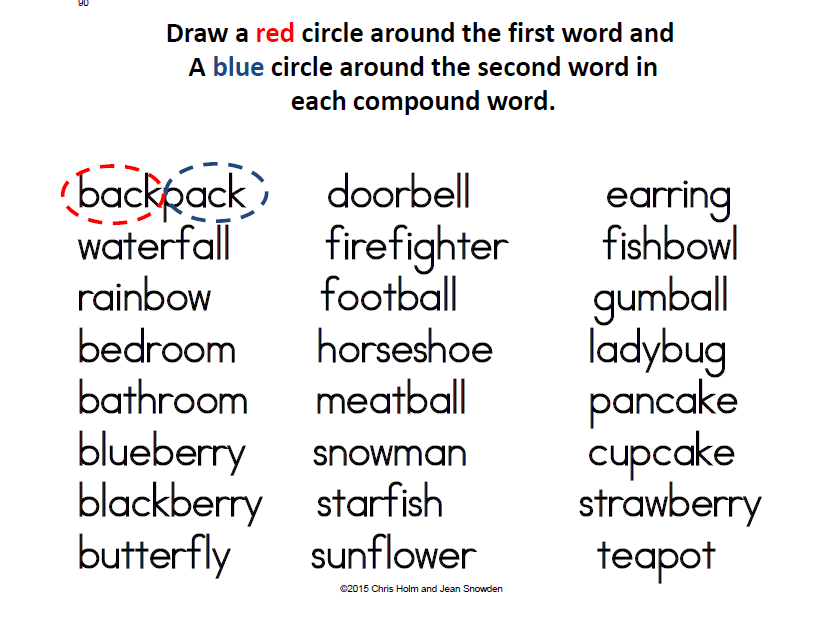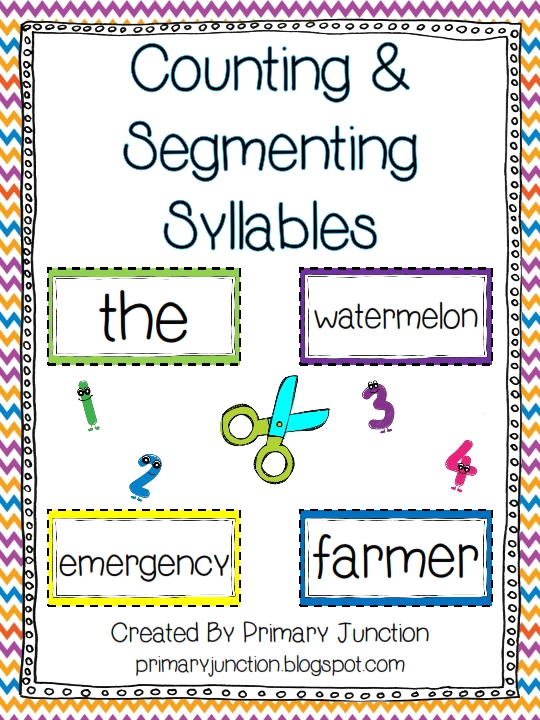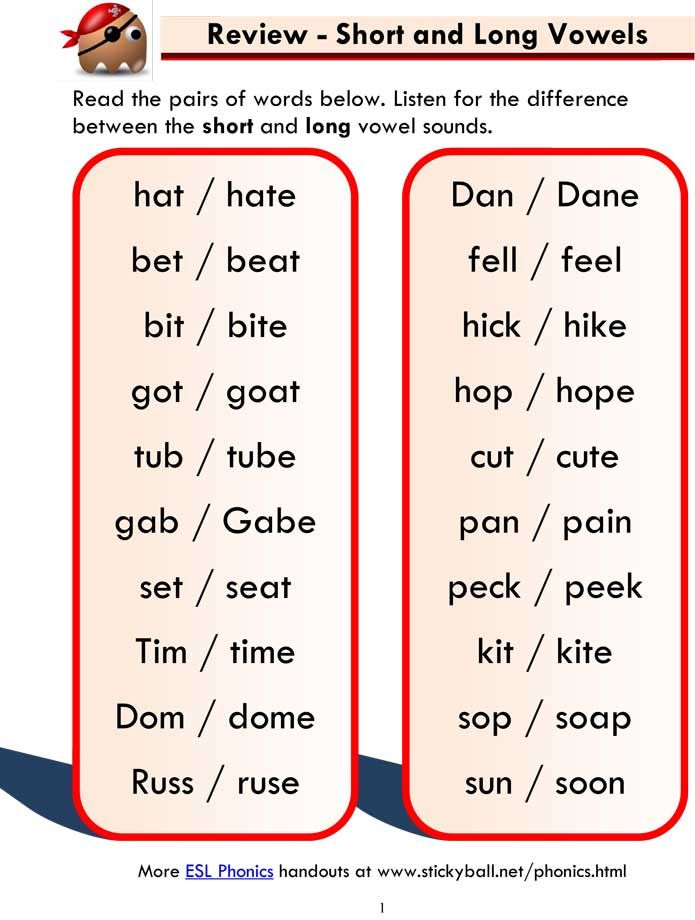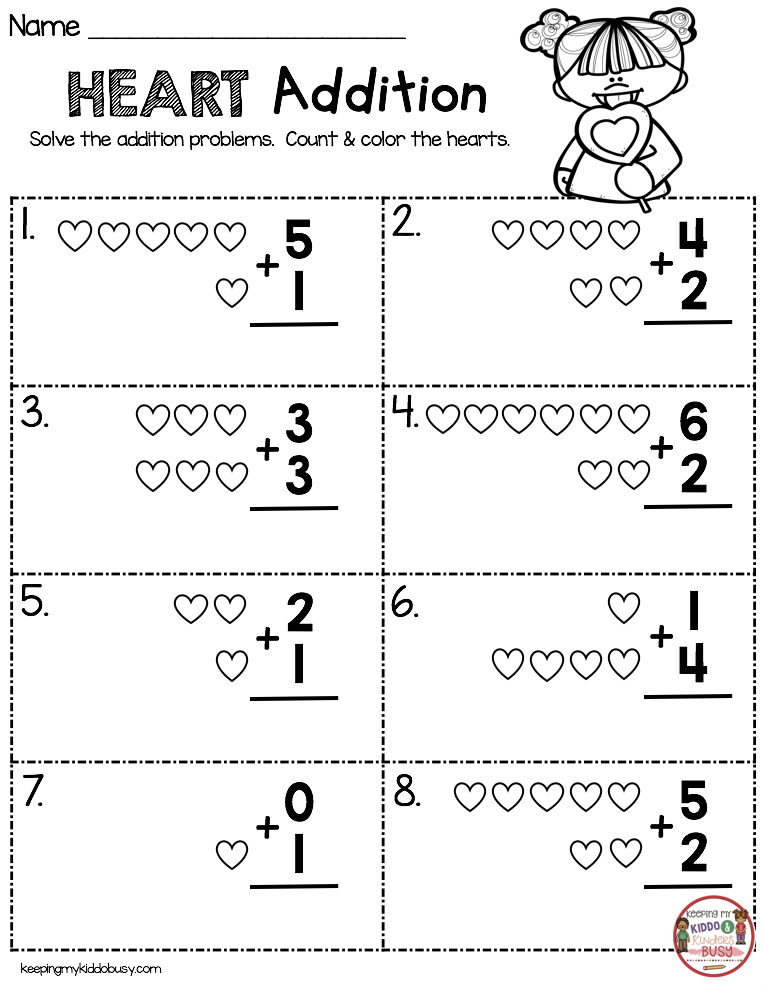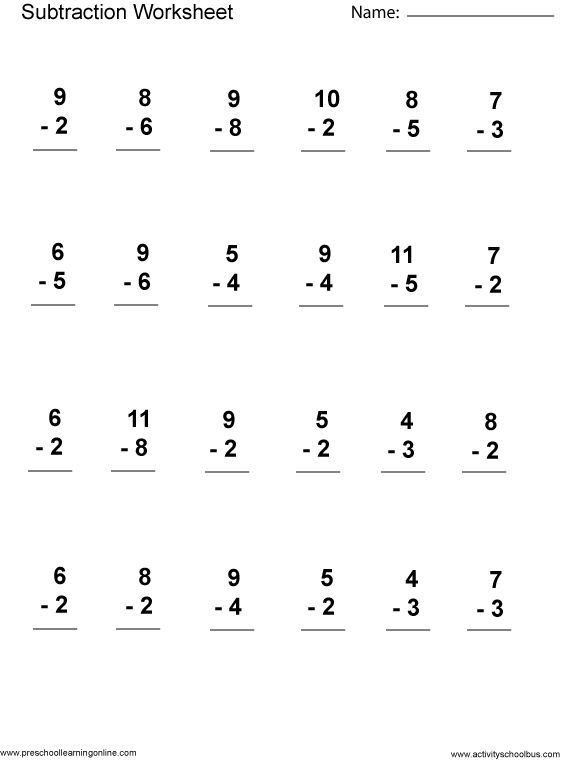Preschool compound words
Early Reading {Compound Words}
SHARE THIS POST:
Creating original materials was one of my favorite parts of Montessori training. One material I created is within the Blue Series and involves one of my favorite concepts to teach kids – Compound Words.
Compound Words Activity for Preschoolers
Compound words can be a lot of fun for kids. Think about it. My five-year-old giggles when he puts two words like “butter” and “fly” together to make “butterfly.”
“Mom, how can “butter” “fly”?”
Jokes are a big hit with kids this age, and compound words play right into that love!
Putting two words together like “butter” and “fly” is more than simply fun, the exercise is a great one for reading comprehension and writing. Children will learn a great deal from having fun. Isn’t that the way it should be?
What is a Compound Word?
So, we have established that kids have a blast learning compound words. Wordplay, in general, is always a big hit. I love introducing this blue series lesson to kids.
How exciting to learn that when you combine two words not only do you have a NEW word, but you have a word with a COMPLETELY different meaning!
Mind blow, right?
There are three types of compound words. First, we have open compound words, such as school bus, then a closed compound word, such as applesauce, and finally, a hyphenated compound word, such as well-being.
Compound Words List
I put together this list of compound word examples. And, you know? It was a blast gathering these examples for kids!
- airplane
- airport
- antfarm
- applesauce
- armpit
- arrowhead
- babysitter
- backbone
- backpack
- ballpark
- ballfield
- ballgame
- barefoot
- barnyard
- baseball
- basketball
- bathtub
- beachball
- bedroom
- blackberry
- blackbird
- blackboard
- blackhole
- blueberry
- bluebird
- bluegrass
- bobcat
- bodyguard
- bookcase
- bookmark
- bookshelf
- bookstore
- bookworm
- bowtie
- boxcar
- brainwash
- bulldog
- bullfrog
- bulldozer
- bunkbed
- buttercup
- butterfly
- buttermilk
- campfire
- campground
- cardboard
- carpool
- cartwheel
- catfish
- caveman
- chalkboard
- cheeseburger
- cheesecake
- chopsticks
- classroom
- clipboard
- copycat
- courthouse
- cowboy
- cowgirl
- crabapple
- daydream
- daybreak
- doghouse
- doorway
- doorknob
- downstairs
- downtown
- dragonfly
- drawbridge
- drawstring
- driveway
- drumstick
- dugout
- dustpan
- dustbunny
- earache
- eardrum
- earring
- earthquake
- earthwarm
- eggnog
- eggshell
- eggplant
- evergreen
- everyone
- everything
- eyeball
- eyebrow
- eyeglasses
- eyelash
- eyelids
- fingernail
- fingerprint
- firecracker
- firefly
- firehose
- firehouse
- fireman
- fireplace
- firepole
- fireproof
- fishbowl
- fishtail
- flagpole
- flashlight
- football
- footstep
- footprint
- golfball
- groundhog
- gumball
- hairband
- hairclip
- haircut
- hammerhead
- handbag
- handcuff
- handshake
- headlight
- headlamp
- homesick
- honeybee
- honeycomb
- honeydew
- honeymoon
- honeycomb
- hotdog
- housefly
- humpback
- iceberg
- junkyard
- laptop
- lapdog
- lightbulb
- lighthouse
- mailbox
- mailman
- matchbox
- milkshake
- moonlight
- notebook
- notecard
- pancake
- pinwheel
- playground
- playhouse
- policeman
- policecar
- ponytail
- quicksand
- railroad
- rainbow
- raincoat
- rattlesnake
- rearend
- rowboat
- sailboat
- skyscraper
- spaceship
- starfish
- starlight
- stoplight
- stopwatch
- sunflower
- sunglasses
- sunshine
- tablespoon
- tailbone
- teacup
- teaspoon
- topgun
- tophat
- tugboat
- turntable
- upstairs
- wallflower
- wallpaper
- watermelon
- wheelbarrow
- wristband
- zookeeper
Compound Words Activity
This language activity is great because pre-readers can participate in the activity by finding the puzzle pieces that fit.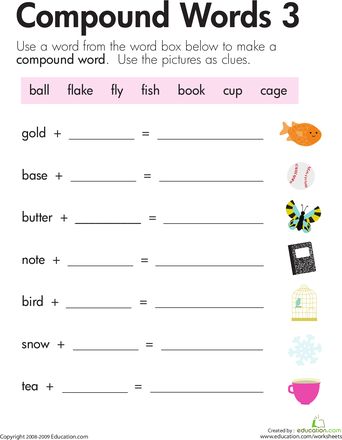 Simply download this document, print on card stock, and cut. Laminate before cutting for safe keeping.
Simply download this document, print on card stock, and cut. Laminate before cutting for safe keeping.
Invite the child to the activity. Place one word (or one-half of the compound word) on the left side of a mat or table. You can create a column to the left. The other puzzle pieces can be left in a pile for the child to access to find a match.
Materials
- Blue Cardstock
- Printer & Printer Paper
- Laminator
- Scissors
- Images from Computer (or elsewhere)
- Compound Words
Images are on one side (for control of error and younger children) and words (for older children) on the other side of the card.
Approach
- Search for images that create compound words (Consider this step done. Here is my compound word images printable)
- Type or write the words that match the images
- Print out
- Cut cardstock into cards sized to your liking
- Cut words and images out
- Glue words on one side of the card and images on the other side
- Laminate
- Cut the cards in half in various “puzzle” patterns with one image/word on one side and one image/word on the other
- Introduce to your child
The control of error is the puzzle piece.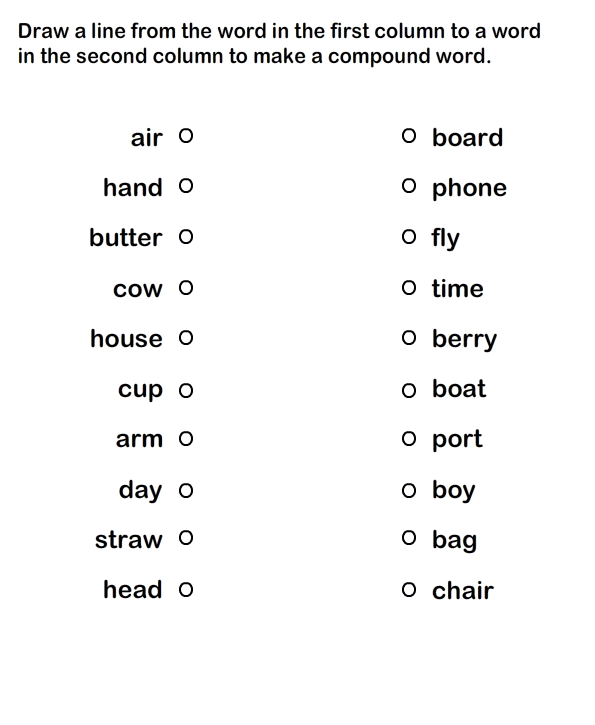 I created each compound word to fit together with two puzzle pieces.
I created each compound word to fit together with two puzzle pieces.
Use Concrete Objects & Images
My goal initially is to use these cards with concrete objects. I tried to choose compound words that would lend to matching with objects like “butterfly.” I can find a “butter” object and a “fly” object to use initially.
Compound Word Activity Extensions
There are many possibilities with this activity. Here are a few ideas for you to explore with your kids!
- Create an artwork using one (or more) of the compound words
- Illustrate and write a story using the words
- Trace the words
- Write the words
- Match the words with the image
- Match the words with objects
- Give a child a bag of halves and strategically place the other halves around the classroom or home.
- Go on a Compound Words Hunt
Resources Mentioned in this Post
- Montessori Language Sequence of Lessons
- Safari Figurines
- Cardstock
- Paper Cutter
Thanks for reading!
Marnie
Teach Compound Words to Preschoolers with Clapping, Pictures and Fun Words
Compound words are words that are formed through the word formation process of compounding.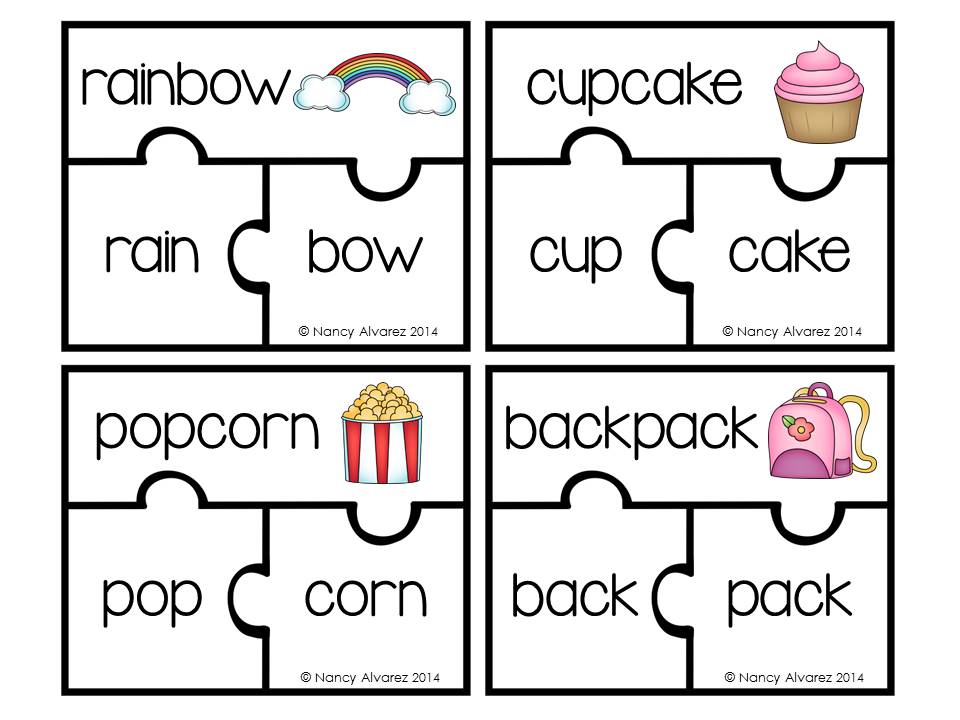
Compounding is the process whereby two or more lexemes—an abstract minimal unit of morphological analysis in the lexicon of a language that roughly corresponds to a set of forms of a single word such as the words eat, eats, ate, eating, and eaten all being forms of the lexeme eat in English—combine to form a single new word.
Within the English language, some of the most common types of compound words include noun-noun compounds (snowball), adjective-noun compounds (blackbird), and verb-noun compounds (playroom). Although young children are not ready to learn about the linguistics of compounding, preschoolers can learn and understand simple and everyday compounds.
The following lists some simple compound words, as well as some ideas for teaching preschoolers about compounds.
Great Compound Words for Preschoolers
The following are simple compound words that most preschoolers will know or can understand:
- applesauce
- bathroom
- bedroom
- birthday
- blueberry
- cupcake
- downstairs
- firefly
- goldfish
- grasshopper
- haircut
- inside
- mailbox
- outside
- playground
- snowflake
- toothbrush
- upstairs
- underwear
- watermelon
A printable word list of over 2,000 additional compound nouns is also available for download.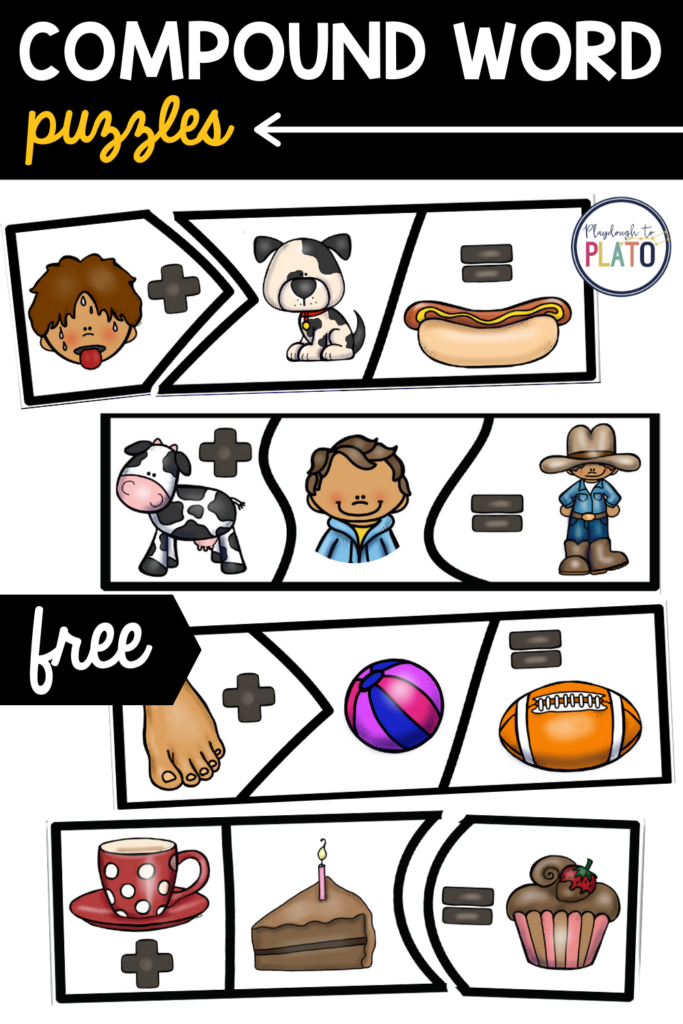
Teaching Compound Words to Preschoolers
The preschool teacher can use any or all of the following activities to teach preschoolers about compound words:
Clapping Activity
Speak the first word of a compound word aloud. Instruct the children to say the word and clap. Then speak the second word of the compound aloud. Have the students repeat this word and clap. Then tell the preschoolers to say both words together and to clap for each word.
For example: apple (clap) + sauce (clap) → apple (clap) sauce (clap). The clapping activity teaches preschool aged children that compounds consist of multiple words.
Picture Cards
For each compound word, make three picture cards. One card should include an image of the compound word while the other two cards should include images of the two words that form the compound. For example, use a picture of a tooth and a picture of a brush for the compound word toothbrush. As an activity, hold up the two cards that make up the compound.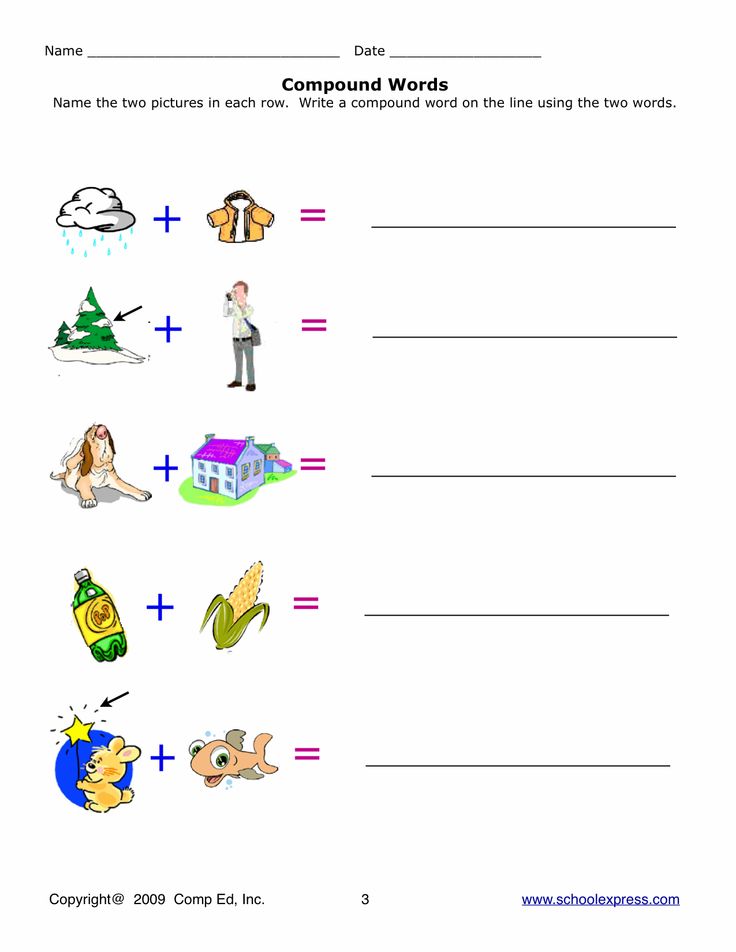 Have the preschoolers figure out the words and then the compound word.
Have the preschoolers figure out the words and then the compound word.
Once the students have figured out the compound, show them the picture of the compound word. This picture card activity also teaches young children that compounds are formed by combining two or more words.
Silly Compounds
For a fun compound word activity that preschoolers will love, have the students think up new and possibly silly compounds. Also have the children describe what their new words mean. For example, cat + shower → catshower (a shower for cats) and monkey + pants → monkeypants (pants for monkeys or pants with a monkey pattern).
This activity helps reinforce the idea that compound words are new words that are made up of two other words.
Compound words are common words in the English language that consist of two or more words that combine to form a single new word. Preschool teachers can use this list of some simple compound words and the word activities to teach preschool aged students about compounds.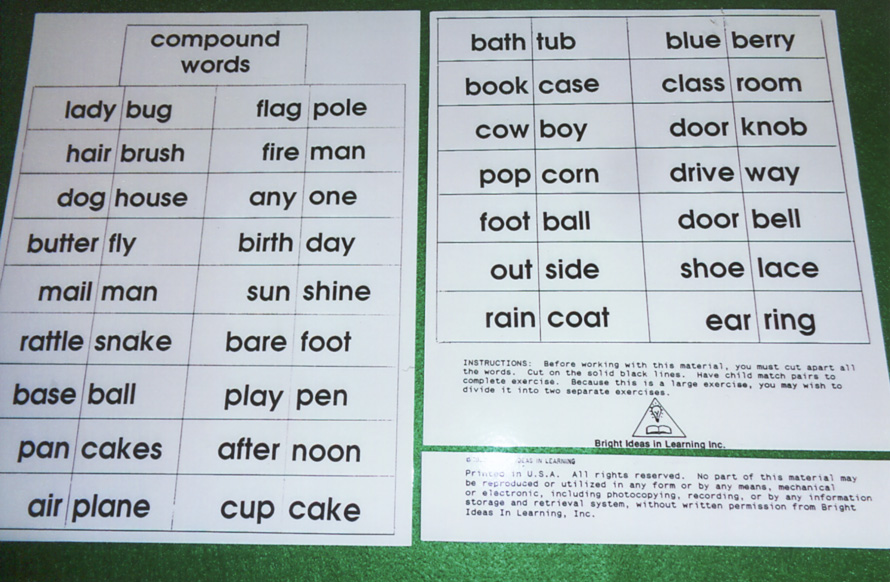
Speech therapy lesson for children 6-7 years old with OHP on the topic "Formation of compound words"
Synopsis speech therapy lesson on the formation lexical and grammatical representations on the topic: Formation of compound words.
Thread : Education difficult words.
Group children according to the structure of speech disorders: ONR.
Priority educational activity: "Speech development". nine0005
Integration educational areas: "Speech development", "Cognitive development", "Social and communicative development", "Physical development".
Purpose : formation of compound words.
Tasks: correctional and educational: nine0004 learn to highlight by ear complex words from poems and tongue-twisters; develop skill recognize words by their interpretation; to form the skill of composing complex words by merging two bases; exercise in the independent formation of complex words with the help of supporting words; to consolidate the ability to divide complex words into two parts; enrich children's active vocabulary, learn to use complex words in speech; nine0003 correctional and developmental : development attention, memory, visual and auditory perception; development of speech coordination with movement; educational: nine0004 cultivate the ability to listen to each other's answers; educate cognitive interest in the native language.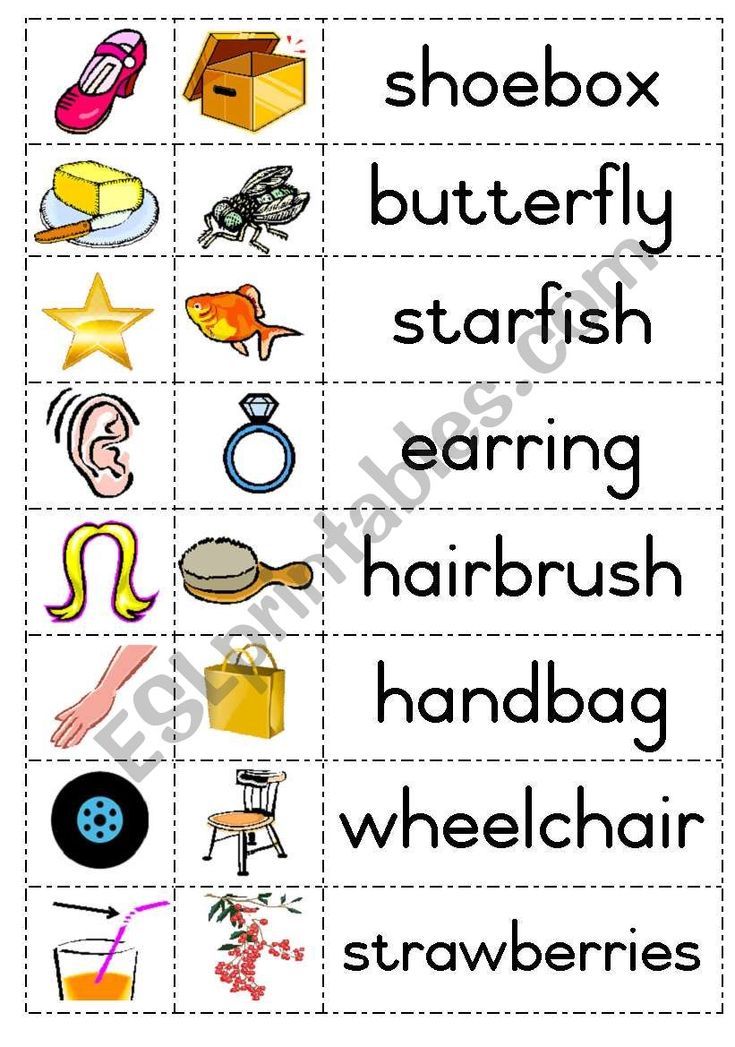
Planned results : children form (define) compound words and make sentences with them.
Vocabulary work: lumberjack, fisherman, birder, snake catcher, beekeeper, gardener, dog breeder, digger, chimney sweep, plumber, steamboat, lunar rover, ship, scooter, snowmobile, shrew, mousetrap, pedestrian, plane, locomotive, dump truck, milk truck, meat grinder, samovar, coffee maker, vacuum cleaner, leaf fall, waterfall, snowfall, ice drift, starfall, rhinoceros, water strider, centipede, tarantula, sweet tooth. nine0005
Equipment: semi-flower (paper), hoop, fishing rod with magnet, plastic animals in a bag, envelopes with pictures.
Demonstration picture material: leaf fall, waterfall, snowfall, ice drift, starfall, meat grinder, samovar, coffee maker, vacuum cleaner, rhinoceros.
Lesson plan
1. Organizational moment. Prove that spring came. Start your answer with the words “Spring has come because…” nine0005
2.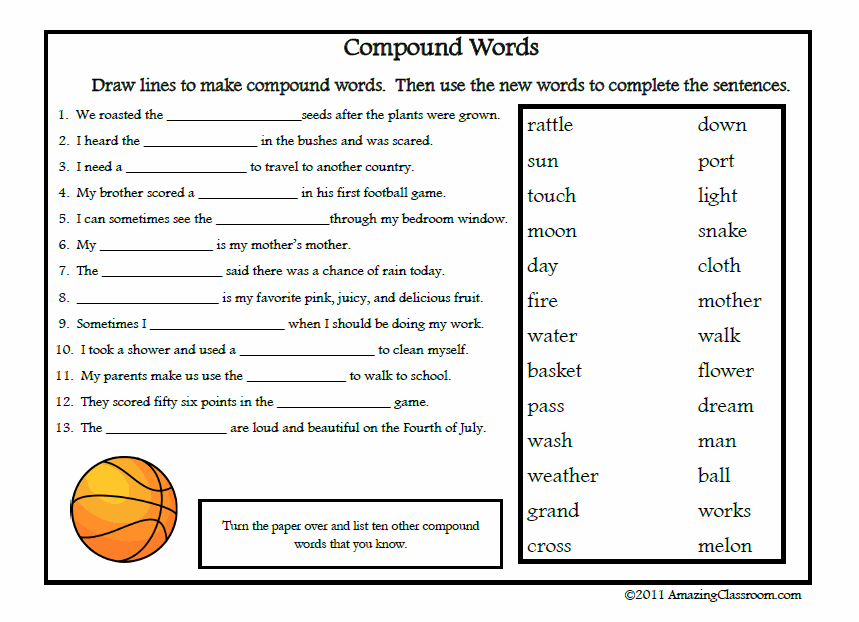 Introduction to the point.
Introduction to the point.
Game "Parts of a word". On chalkboard sheet with the image of an airplane, a scooter and a samovar (overlay of contours).
-What drawn in the picture? What is an airplane? The word plane consists of two parts (words): he flies. The words scooter and samovar are similarly understood.
- Today we will get acquainted with such complex words, which consist of two parts and learn how to put them together. And the seven-flower flower will help us. Why is the flower called "seven-flower"? (Children's answers)
- Tear off petal, give us a task, my friend (the child tears off the first petal, on which road shown).
3.Basic part. 1) Game "Road "
- One, two, three - turn around, on find yourself on the road!
On on the road you can meet cars whose names were formed from two words, for example: “milk”, “carries” - a milk carrier. Similarly we form the words: water carrier, timber carrier, fuel carrier, cement carrier, garbage carrier, flour carrier.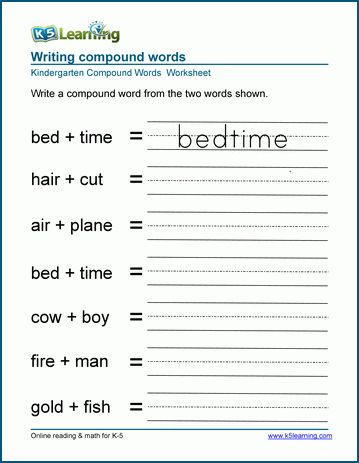 nine0005
nine0005
- Tear off petal, give us a task, my friend. (The child tears off the next petal with fishing rod)
2) Game "Fishing".
- One, two, three, turn around, on find yourself fishing!
B pictures lie on the hoop, children pull out one by one with the help of a fishing rod and call words, for example: a fisherman catches a fish (bird catcher, snake catcher, hunter, mousetrap, flycatcher). Education words using the verb "catch".
Tear off petal, give us a task, my friend. (The child tears off the next petal with ear)
3) The game "Find a difficult word."
- One, two, three, turn around, learn to listen carefully!
Listen and name difficult a word that is hidden in a poem or tongue twister .
It's snowing, cars are parked,
Even the tires don't rustle.
In our city today -
The snowiest, snowfall!
Del there is always a mass in the kitchen...
make minced meat?
here meat grinder: turn on the electricity -
You will receive minced meat the right amount!
lived on light dump truck,
He is on visited the construction site,
drove up in the morning to the gate,
Watchmen They asked: Who is there?
Water cascade is flying down!
This, my dear, is a waterfall!
This is the place where the water
Always hurries down.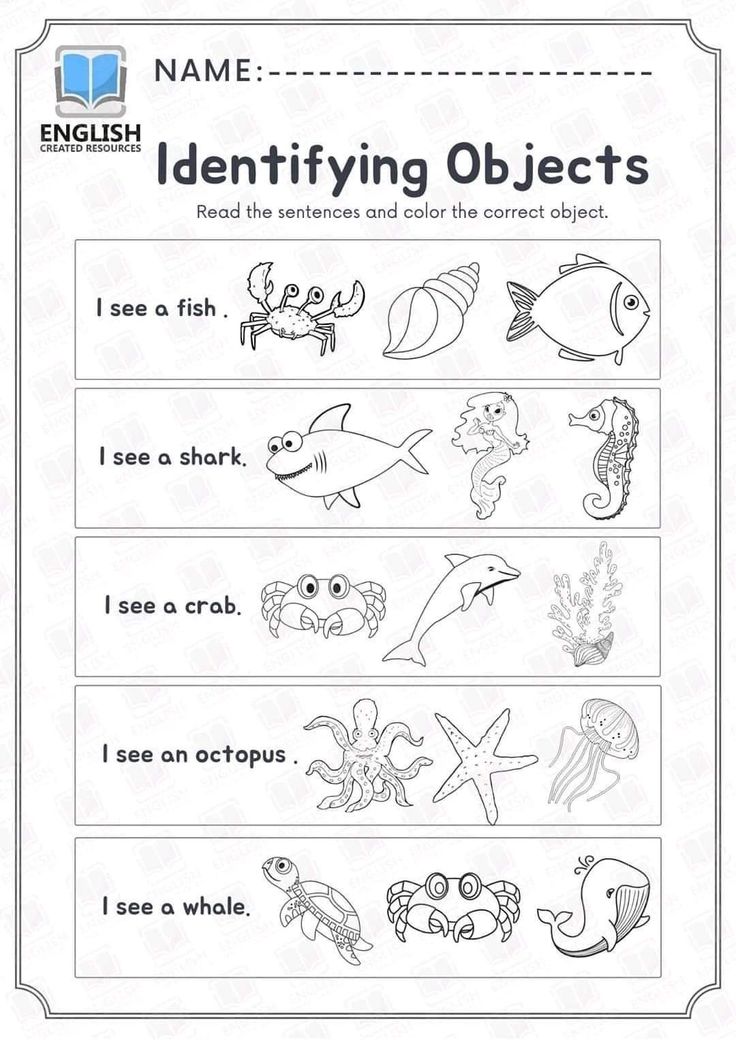
Aty-baty, the soldiers were walking Aty-baty, to the market, Aty-baty, what did you buy? Aty-baty, samovar. nine0005
Fish fisherman catches, The whole catch floated into the river.
Tear off petal, give us a task, my friend. (The child tears off the next petal with image of a man in a tracksuit)
4) Physical Minute
get charging!
Children perform movements after the teacher.
words there are miscellaneous: Hands on the belt. Turns left and right. funny, funny, simple and serious And very very complex. threaten with index finger of the right hand. nine0005
Falling leaves flying word. fluttering movements hands from top to bottom. Snowfall is a word brilliant. "Lanterns". Starfall is a sparkling word. Raising your hands up unclench your fist with force.
Waterfall - the word is wet. Shake off water drops hands. Ice drift - word floating. Wave-like movements palms. Rhinoceros - word mighty. bend hands to the shoulders, fingers clenched into a fist. Vacuum cleaner - word buzzing. Imitation of a vacuum cleaner with sound: woo. Samovar - the word puffing. Spring, hands on the belt: puff-puff-puff. And sweet tooth is a word crispy! Snaps of the fingers: хр-хр-хр. nine0005
Vacuum cleaner - word buzzing. Imitation of a vacuum cleaner with sound: woo. Samovar - the word puffing. Spring, hands on the belt: puff-puff-puff. And sweet tooth is a word crispy! Snaps of the fingers: хр-хр-хр. nine0005
Tear off petal, give us a task, my friend. (The child tears off the next petal with zoo image)
5) Game "Zoo".
- One, two, three, turn around, in find yourself in the zoo!
Children take animals out of the bag and form complex adjectives.
U giraffe long neck (which giraffe?) long neck giraffe; the tiger is long tail-longtail tiger; at the zebra fast legs - swift-footed zebra, etc. nine0005
Tear off petal, give us a task, my friend. (The child tears off the next petal with Dunno)
6) Game "Explain Dunno".
- One, two, three, words Explain to a stranger!
K Dunno came to visit us (a picture is displayed). He knows a lot of complex words, but does not know how they turned out.
let's Let's explain the word "tricycle".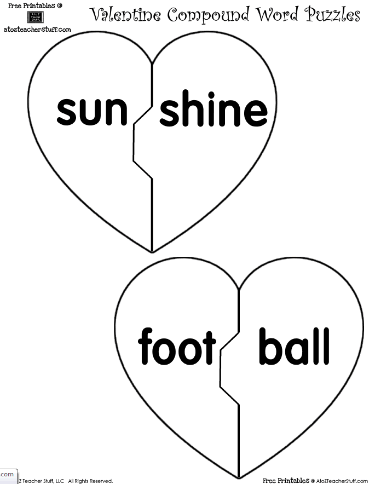 Children explain what words make up a compound word. What can be tricycle? Make up a sentence with this word. nine0005
Children explain what words make up a compound word. What can be tricycle? Make up a sentence with this word. nine0005
Similar work is carried out with the words: “five-story”, “centipede”.
From pick a petal, give us a task, my friend. (The child takes the next petal with the image of envelopes)
4.Independent application of knowledge in practice. Game "Envelope".
- One, two, three, in Kindergarten we will be back!
B envelope two pictures. You need to determine which picture has a compound word and make an offer with him.
5. Summary of the lesson. Guys, tell me, what words are called "complex"? (children's answers) What words did you remember?
Compound words visiting children
06 Mar 2011 Written by Ekaterina
For the development of the lexical and grammatical side of speech, I developed a lesson using technical means. Since the formation of complex words by adding two words for a preschooler is a very difficult task, I tried to facilitate this task with the help of visual-game tools, modeling situations. nine0199
nine0199
Speech therapist Zonova N.A.
MDOU d / s "Northern Lights".
p.
• Expand and consolidate ideas about the professions of people, their originality, attributes, abilities of a person
• Learn to form complex words by addition, activate the dictionary with complex words;
• Learn to form nouns from verbs;
Correction-developing:
• develop general and fine motor skills;
• improve the ability to use a long air jet;
• develop visual attention and perception;
• create an acoustic-articulatory sound image [Л']
• expand the dictionary with definitions, verbs;
• practice the ability to make sentences with a given word; nine0206 • development of graphomotor skills;
Correctional and educational:
• to cultivate the desire to engage in and achieve positive results.
• educate respect for the work of people of different professions
Equipment: TV, DVD player, music center, water and sand center, illustrations with people's professions, illustrations of the Cheburashka silhouette, a picture depicting a part of the Wolf's body, fishing rods, fish with magnets, a ball .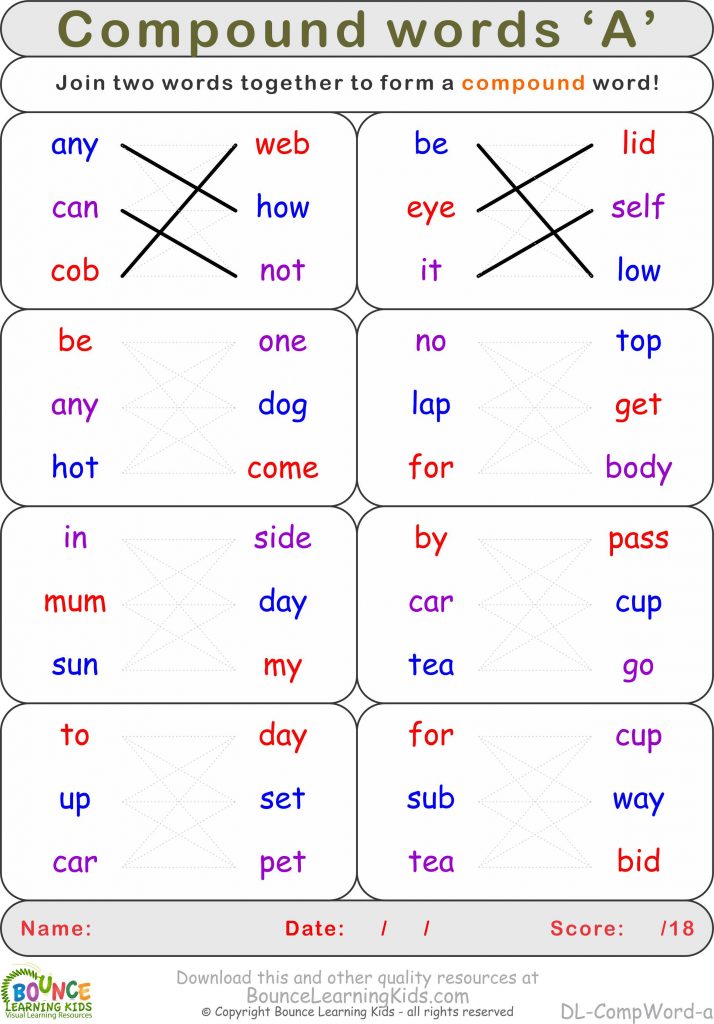
Handout: cards depicting various attributes for different professions, pictures depicting people of different professions, a simple pencil for each child didactic game "Sound Lotto", plastic massage balls, metal rings for each child; medals. nine0005
Preparing for the lesson: pre-filmed clip from the TV show “Good night kids”
1. Organizational moment:
Speech therapist:
One, two, three, four, five new day, I will smile at you, and you will smile at each other. We are calm and kind, we are friendly, healthy. Let's take a deep breath, inhale kindness and beauty.
The melody from the TV show “Good night, kids” sounds, the children sit down on the carpet in front of the TV. nine0206 Speech therapist: Why did the children's program start in the afternoon? Maybe we need our help, let's see.
2. Determination of motivation for the lesson:
A speech therapist appears on the screen in the role of a TV presenter and Phil's toy. They are having a dialogue.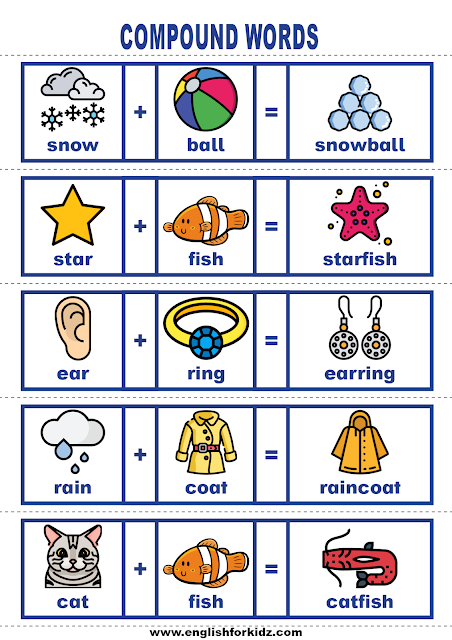 Filya turns to the children for help
Filya turns to the children for help
Filya: Hello, Natalia Aleksandrovna. I need help. I was given the task to unravel the professions of people by these attributes, but I just can’t do it, but I need to tell the children about different professions in the evening edition, I’m just “dying”, help. nine0206 Speech therapist: Okay, don't cry. Today I will have a lesson in the kindergarten "Teremok". The children in this garden are very smart, inquisitive and they will definitely help you. Let's start with my profession, TV presenter (shows two cards or a slide: on the first TV, on the second - the presenter) What does the TV presenter do? What attributes does he need?
Phil: microphone, script, news, audience.
Speech therapist: Right. The word "TV presenter" is derived from the two words television and leads. Here we have completed the first task. And now you, my dear children. nine0206 Turning off the TV
Speech therapist: today your favorite heroes of fairy tales and cartoons will ask us questions, which we will hear from the TV screen, they are TV presenters today.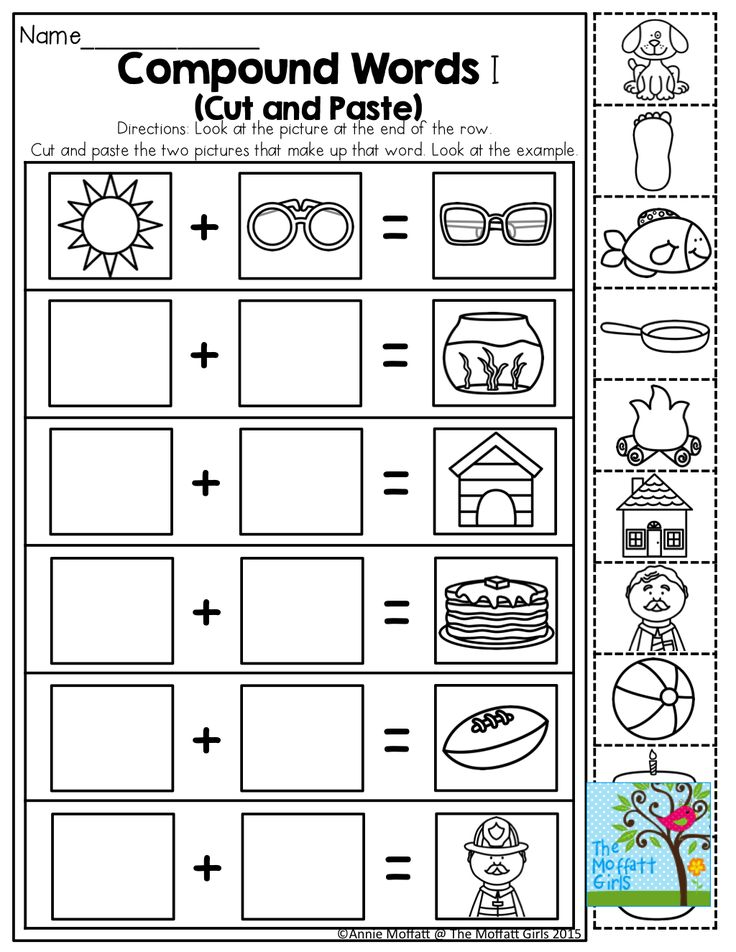 Who is the first, guess by the silhouette (the teacher shows the silhouette of Cheburashka)
Who is the first, guess by the silhouette (the teacher shows the silhouette of Cheburashka)
3. Development of general motor skills. Relaxation exercises:
Life-size puppet "Cheburashka" appears on the screen.
Cheburashka: Hello guys. Remember my movements, repeat them, and guess the profession of a person from these movements and these working tools. nine0206 Cheburashka imitates cleaning a pipe, climbing stairs, shaking off dust from clothes.
Speech therapist: Do you remember the movements? Let's repeat. (repeat movements)
Look at these tools, what profession does a person need them for? This profession is not very common in our time, it is a chimney sweep (shows cards or a slide: on one pipe, on the other - a person cleans)
Children: chimney sweep
Speech therapist: what does a chimney sweep do? What should be a chimney sweep? Why clean pipes?
Children: Cleans. Strong, brave, courageous. To be free from debris, dust, burning. To let the smoke out.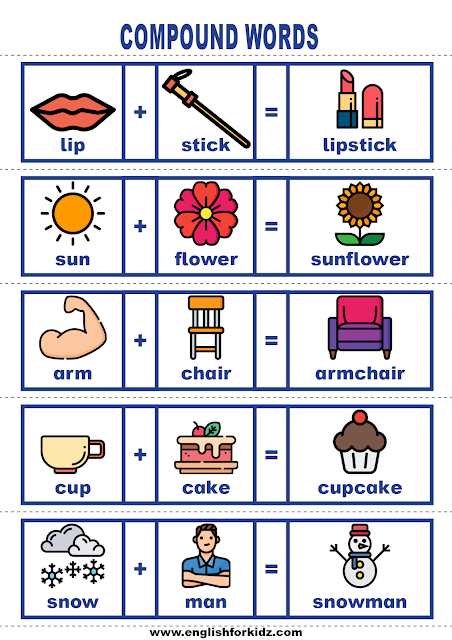 nine0005
nine0005
4. Self-massage of hands and fingers. Development of fine motor skills:
Speech therapist: guys, you said that the chimney sweep must be strong, then let's train our hands. To begin with, let's perform a massage with the help of plastic balls - "masseurs".
Children take balls and perform movements as shown by the teacher. The teacher accompanies the movements with a poetic text
Speech therapist:
We made a kolobok
From the flour of its side
Crumpled, crumpled, squeezed
We created a round ball
Rolled on the palm of your hand
We removed the other one
Tossed it up a little
And caught it by the sides
If you like it
Help yourself, I'll give it back
Next, exercises with metal rings are performed. The thumbs are worked out on both hands alternately
I put on the ring
Move it up and down
I roll, roll
I get great benefits
After self-massage, children are offered games to develop dexterity, accuracy, amplitude of the hands "Well", faster”, expanders, tops
Speech therapist pronounces a verse text on relaxation of the hands and fingers
Hands shook vigorously
our fingers stretched
yawned, yawned
and smiled at everyone.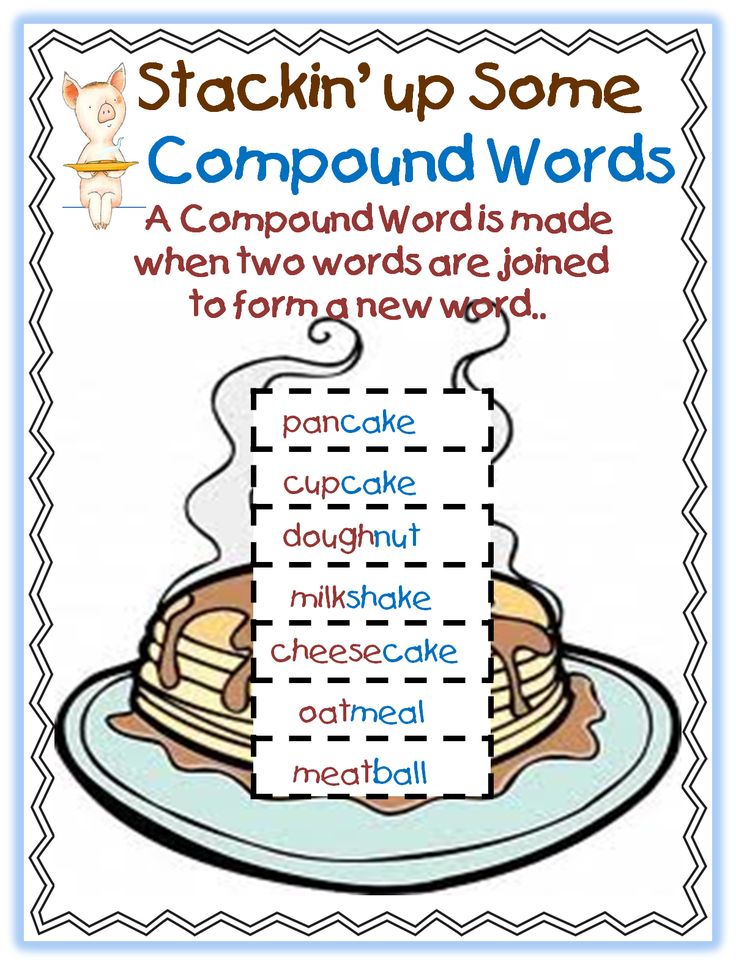
5. Development of graphomotor skills:
Speech therapist: and now guys, come to your desks. Simple pencils and pictures are waiting for you. (each child names his picture from the attributes and tools of a chimney sweep)
Speech therapist: guys, you must shade your picture in the direction indicated in the box in the upper left corner of your leaflet (the teacher individually approaches and checks the correctness of the task, marks the landing when drawing) nine0005
6. Formation of a long targeted air jet:
Speech therapist: let's turn our attention to the TV screen, who is the next TV presenter? Try to get to know it in part. (showing part of the wolf picture)
A life-size puppet appears on the screen.
Wolf: Good afternoon, my friends. I enjoy being a TV presenter. Listen to my riddle, and quickly give me a guess:
Has wings, but does not fly
No legs, but you can’t catch up
Swims in an aquarium
Makes people happy
Children: Rybka
Wolf: Correct.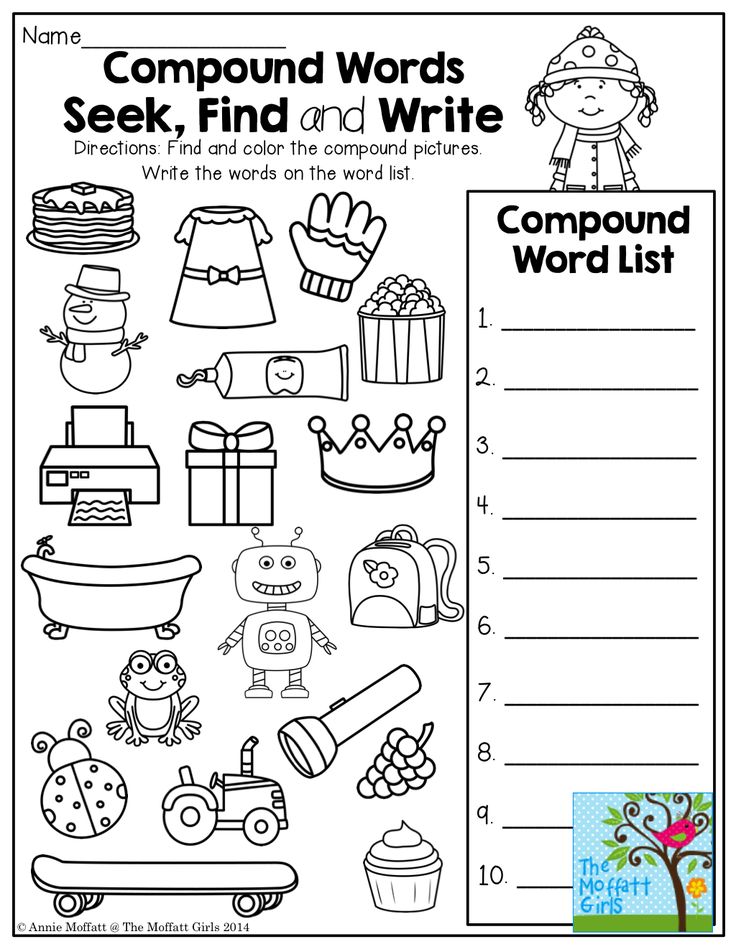 What is the name of the profession of a person who fishes?
What is the name of the profession of a person who fishes?
Children: fisherman.
Speech therapist shows two cards or a slide: on one - a fish, on the other - a person is catching
Speech therapist: What does a fisherman do? What kind of fisherman is he? What can you fish with?
Children: Catches fish. Strong, wet, bold. Fishing rod, nets, hands, harpoon.
Speech therapist: and now, you will be fishermen.
Children go to the center of water and sand and use fishing rods with magnets to catch fish. nine0206 Speech therapist: and I will ask some guys to blow, create a storm on our "sea", let our fishermen try to catch in difficult conditions.
Then the children switch roles.
Speech therapist: guys, look what we have at the bottom of the sea?
Children: rubbish, things, objects.
Children: diver
The teacher shows cards or a slide: on one - water, on the other - a person descends into the water
Speech therapist: What does a diver do? What kind of diver should be? Why do you need his profession? nine0005
7.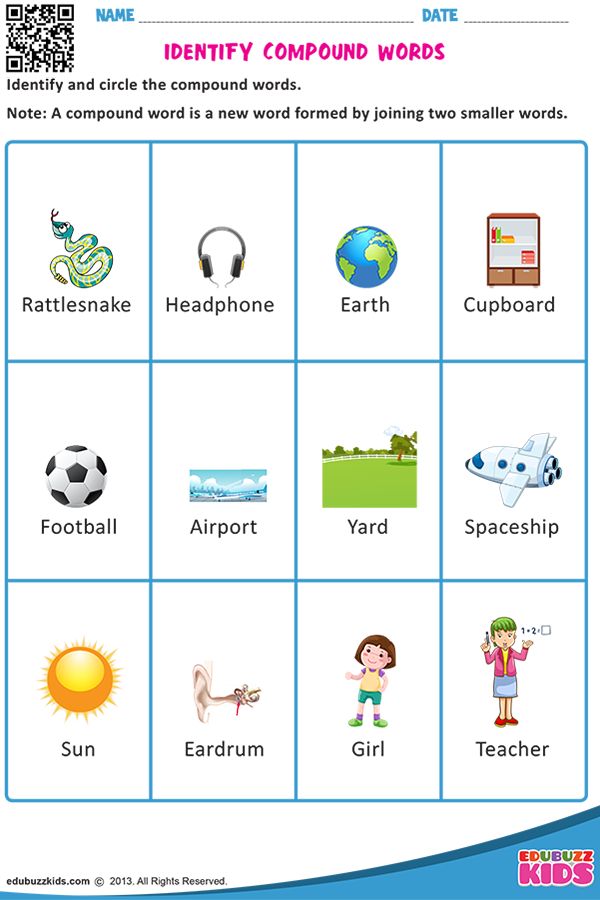 Formation of nouns from verbs:
Formation of nouns from verbs:
And now, stand in a circle, let's play the game "Who is doing what?" I will throw the ball to you and name the action, and you return the ball to me and name the profession of the person who performs this action
Teaches - teacher
Educates - educator
Cleans pipes - chimney sweep
Cooks - cook
Catches fish - angler
Flies - pilot
Climbs into the water - diver
Conducts television programs - TV presenter
8. Literacy education:
Speech therapist: We have another TV presenter, this is the heroine of many folk tales - the Fox.
Lisa's life-size puppet with his tasks appears on the TV screen.
Lisa: My dear children, I welcome you! I would like to understand who cuts down trees in our forest? If you recognize a person of this profession, tell him that there are few trees left in our forest. I hope for you.
Speech therapist: (shows cards or a slide: on one - a forest, on the other - an ax) Guys, what is the name of the profession of a person who cuts a forest? nine0206 Children: Lumberjack
Speech therapist: What does a lumberjack do? What tools does a lumberjack need? Is it possible to mindlessly cut down a forest? Guys, what is the first sound in the words "Lumberjack" and "Fox"
Children: sound [L ']
Speech therapist: And how does the sound sound in these words: hard or soft?
Children: Softly
Speech therapist: Guys, come to the tables, let's tell everything we know about the soft sound [L']
Children choose cards with symbols that match the characteristics of the soft consonant sound (barrier - tongue, air stream - warm , according to the participation of the vocal cords - voiced, according to the participation of the middle part of the back of the tongue - soft, the color of the chip is green, the visual image of the letter and its name)
Speech therapist: Well done guys, they coped with the characteristics of the sound, and Lisa gave us cards with the names of professions that will help the forest animals.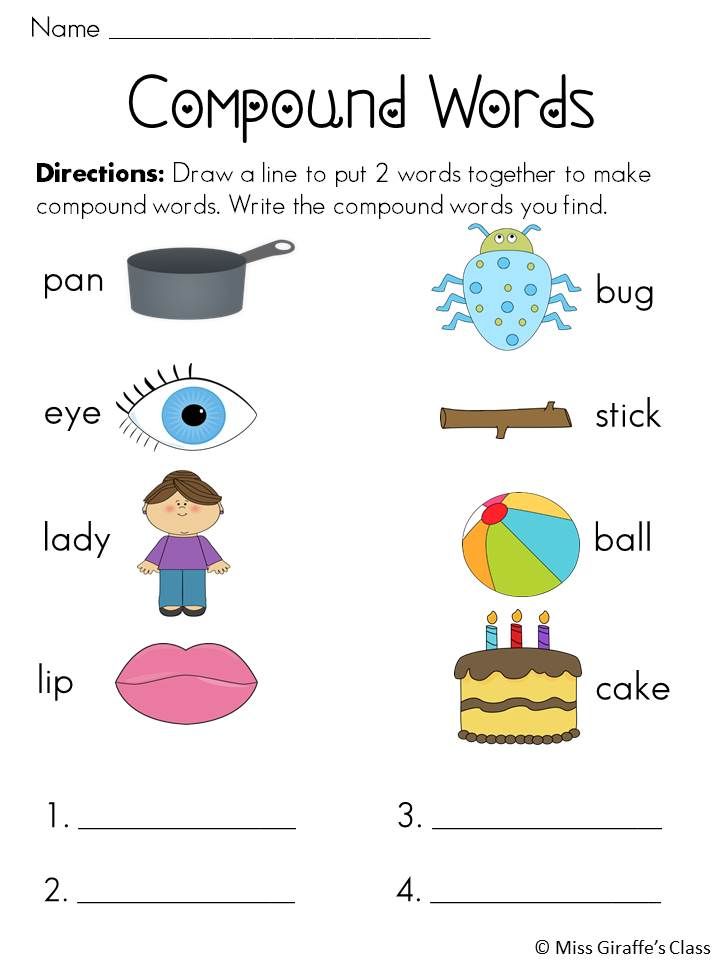 Let's try to guess them.
Let's try to guess them.
9. Consolidation of the ability to form complex words:
The teacher shows cards or a slide "Gardener", "Beekeeper"
Speech therapist: What does the gardener do? beekeeper? why do they plant gardens, bees?
Children: Plants gardens, breeds bees. Gardens are needed to be beautiful, to breathe easier, a home for birds and animals. Bees for pollination of flowers, for honey production. nine0005
10. To practice the ability to compose a sentence with a given word:
Speech therapist: Well, guys, you have learned a lot about different professions. Let's decompose the pictures depicting people of different professions into the necessary cards with the image of attributes.
Children independently lay out pictures depicting people of different professions on a card that shows the relevant attributes for this profession
Speech therapist: now guys, think and make a sentence with your word - the name of the profession, come up to me, pronounce your proposal. nine0206 I'll pass on your answers to Filla, and the show will be on time and very interesting.
11. Summary of the lesson:
Children stand in a circle, the speech therapist asks questions and evaluates the work of the children in the lesson
Speech therapist: Guys, I really liked you, you clearly answered the questions, tried to pronounce the sounds correctly and clearly.
Which task did you like the most?
Which TV presenter was the best?
What is the profession you will choose when you grow up?
You greeted us with a smile
Answered questions
Draw and write
Play with fingers together
But the time has come to say goodbye
And I want to wish you,
To be proud of your profession, when you grow up
Be proud and work like today for a mark of five
The teacher awards each child with a medal
| Like | nine0390
Author: Ekaterina
Hello! My name is Ekaterina and I am glad to welcome you to the site " Speech Therapy for All " If you liked the materials of the site, then you can subscribe to new publications by RSS or Email.